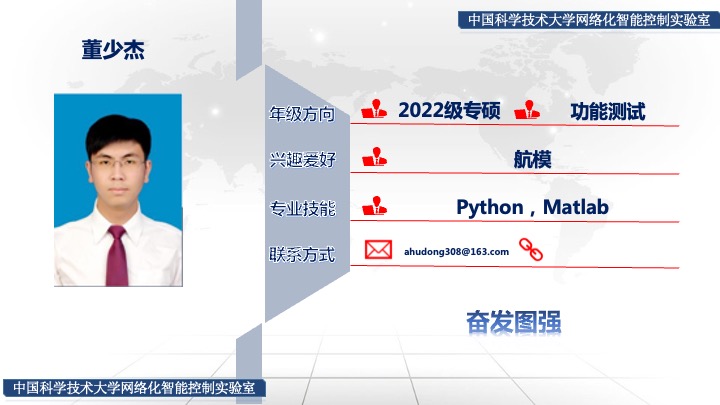个人信息

参与实验室科研项目
人机智能协同关键技术及其在智能制造中的应用
非可信智能驱动的可靠智造
研究课题
基于时序预测的电路板功能测试优化策略及其验证
学术成果
共撰写/参与撰写专利 3 项,录用/发表论文 4 篇,投出待录用论文0篇。
patent
-
基于多分支融合自编码器的印刷电路板功能异常检测方法
赵云波,
李佳玉,
谢祖浩,
陈龙鑫,
and 董少杰
2025
[Abs]
[pdf]
本发明涉及印刷电路板生产加工技术领域,公开了一种基于多分支融合自编码器的印刷电路板功能异常检测方法,包括:采集印刷电路板的锡膏检测数据,为每个锡膏添加所属元件的极差特征;基于访问路径对锡膏检测数据进行统一重排;对重排后的锡膏检测数据提取空间特征;捕捉重排的锡膏检测数据中的电气特征;使用跨结构特征融合模块融合空间特征与电气特征,得到融合特征;对融合特征进行重构,得到重构数据;计算锡膏检测数据与重构数据的均方误差,并转换为异常概率,结合设定阈值判定对应的印刷电路板是否功能异常。本发明通过空间和电气双维度特征融合、多尺度动态建模及掩码引导的精准分析,实现了对印刷电路板功能异常的高精度、高效率检测。
-
基于改进PatchTST模型的印刷电路板功能测项良率预测方法
赵云波,
李佳玉,
谢祖浩,
陈龙鑫,
and 董少杰
2025
[Abs]
[pdf]
本发明涉及功能测项良率预测技术领域,公开了一种基于改进PatchTST模型的印刷电路板功能测项良率预测方法,包括:收集印刷电路板测项结果数据,并计算对应的测项良率数据;通过移动平均将测项良率数据分解为趋势项和残差项,并分别进行多尺度时间片段划分,划分后的各分支时间片段序列经Transformer编码器提取特征,通过动态加权机制实现分支内特征聚合与分支间融合,输出趋势项和残差项的预测结果,并进行线性融合,生成最终的测项良率预测值。本发明通过不同尺度的时间片段划分,实现局部波动细节捕捉与长期趋势建模;利用加权融合模块,平衡趋势与残差预测结果,从而提升模型预测的准确性与可靠性。
-
产线设备故障预测方法、装置、电子设备及存储介质
赵云波,
董少杰,
刘斌琨,
朱慧娟,
许镇义,
and 柏鹏
[Abs]
本申请公开了一种产线设备故障预测方法、 装置、电子设备及存储介质,属于计算机技术领 域。所述方法包括:获取测试结果序列,测试结果 序列包括多个电路板的测试结果信息,测试结果 信息包括电路板中各功能模块的测试结果;根据 测试结果序列,获取各功能模块的良率序列;根 据各功能模块的良率序列,获取多个各功能模块 中的目标功能模块与其他功能模块的相关性序 列;根据各功能模块的良率序列和相关性序列, 获取目标功能模块的良率预测信息;根据相关性 序列和良率预测信息,预测目标功能模块对应的 产线设备是否存在故障。本申请能够准确预测产 线设备是否出现故障,以及时发现故障设备,避 免生产事故的发生。
Journal Articles
-
K-CQL: An Arterial Blood Gas Analysis-Based Deep Offline Reinforcement Learning Algorithm for Mechanical Ventilation Treatment
Jiaying Xi,
Shaojie Dong,
Haoquan Zhou,
and Yunbo Zhao
Health Inf Sci Syst
2025
[Abs]
[doi]
[pdf]
Mechanical ventilation is employed as a supportive therapy for patients with respiratory failure, but the optimal ventilator settings for patient are often unknown and rely on manual adjustment by physicians. Improper parameter settings may lead to severe complications such as lung injury. To personalize mechanical ventilation and predict the optimal ventilator parameters for patients, we propose a ventilator parameter tuning algorithm. This algorithm integrates clinical expertise in ventilator tuning via Arterial Blood Gas (ABG) analysis with data-driven methods. We perform K-means clustering algorithm on patient dataset based on ABG values for the first time, and the classified data was used to train a deep offline reinforcement learning model based on conservative Q-learning (CQL), therefore we named it the K-CQL algorithm. The introduction of human expert knowledge improves the effectiveness of the entire model. Our evaluation based on Fitted Q Evaluation (FQE) on the MIMIC-III dataset shows that the expected return of the output strategy of K-CQL is 1.76 times that of the physicians, and more importantly, the introduction of intermediate rewards related to ABG analysis further improves it. We also demonstrated that the algorithm is capable of recommending mechanical ventilation parameters within a safe range according to clinical nursing standards
-
Modelling and Optimizing Motherboard Functional Testing in Laptop Manufacturing
Peng Bai,
Yu Kang,
Kangcheng Wang,
Yunbo Zhao,
and Shaojie Dong
J Syst Sci Complex
2024
[Abs]
[doi]
[pdf]
Functional testing is key to fulfill quality control in laptop manufacturing and is of great economic value. However, due to the unavailability of practical data, mathematical model and systematic perspective, it has barely been touched from the academic community to date. For the first time, this work provides technical understanding of the key principles of functional testing, mathematically models the general framework, elucidates existing testing strategy under the proposed framework and model, and finally proposes a specified optimization strategy which outperforms existing strategies. This work lays the model foundation for the further optimization of functional testing, and can be regarded as a good example of how a systematic approach can solve practical industrial challenges.
Conference Articles
-
A Reliable Ensemble Model Based on Hierarchical Component Features for Repair Label Prediction of Soldering Defects
Longxin Chen,
Yunbo Zhao,
Binkun Liu,
Shaojie Dong,
Huijuan Zhu,
and Peng Bai
In 2024 14th Asian Control Conference (ASCC)
2024
[Abs]
[pdf]
Using solder paste inspection (SPI) and automated optical inspection (AOI) data, accurate prediction for repair labels of soldering defective printed circuit board (PCB) components can help reduce labor costs. Existing research tries to pick out both the false defect components (actually good) and impossible-to-repair components among defective PCB components, using SPI and AOI data. However, it is inappropriate to pick out the false defect components from screened components using defective information in AOI data. Therefore, the problem setting of existing research is inappropriate, resulting in the algorithm’s performance not meeting actual requirements. To address this problem, we only care about the reliable prediction of impossible-to-repair components. We propose a hierarchical component feature extraction method that can comprehensively characterize the degree of component defects from multiple levels, including pin level and component level. Then we apply the ensemble model based on XGBoost and TabNet and adjust the probability threshold of components judged as impossible-to-repair category, achieving the reliable prediction of impossible-to-repair components. Finally, we validated our method on real datasets and achieved better experimental results compared to baseline methods, which can meet actual requirements,
-
Prediction of Yield in Functional Testing of Motherboards in Laptop Manufacturing
Yunbo Zhao,
Shaojie Dong,
Yu Kang,
Kangcheng Wang,
Longxin Chen,
and Peng Bai
In 2024 14th Asian Control Conference (ASCC)
2024
[Abs]
[pdf]
Functional testing stands as a pivotal quality control step in the production process of laptop motherboards, aiming to validate the proper functioning of various components. However, due to the multitude of functional modules involved on the motherboard, testing all of them requires a significant amount of time and resources. As a result, production line engineers often rely on empirical selection of modules with low yield rates for testing. However, such empirical yield estimation is often inaccurate. To address this challenge, this study proposes a hybrid model based on XGBoost and Long Short-Term Memory (LSTM) networks to predict the yield of each functional module. By harnessing the feature learning capability of XGBoost and the sequential modeling power of LSTM, this model efficiently explores the intricate correlations among motherboard functional modules, thereby accurately forecasting their yields. We extensively train and validate the model using historical production data and successfully deploy it on real laptop motherboard production lines. Experimental results demonstrate that our hybrid model accurately predicts the yield of each functional module, providing crucial guidance for the functional testing process. Through in-depth analysis of the predicted yield results, engineers can systematically choose testing projects to save time and resources. This research offers a novel approach and pathway for enhancing motherboard production efficiency and quality.
博客文章
学位论文
毕业去向
科大讯飞, 算法工程师

